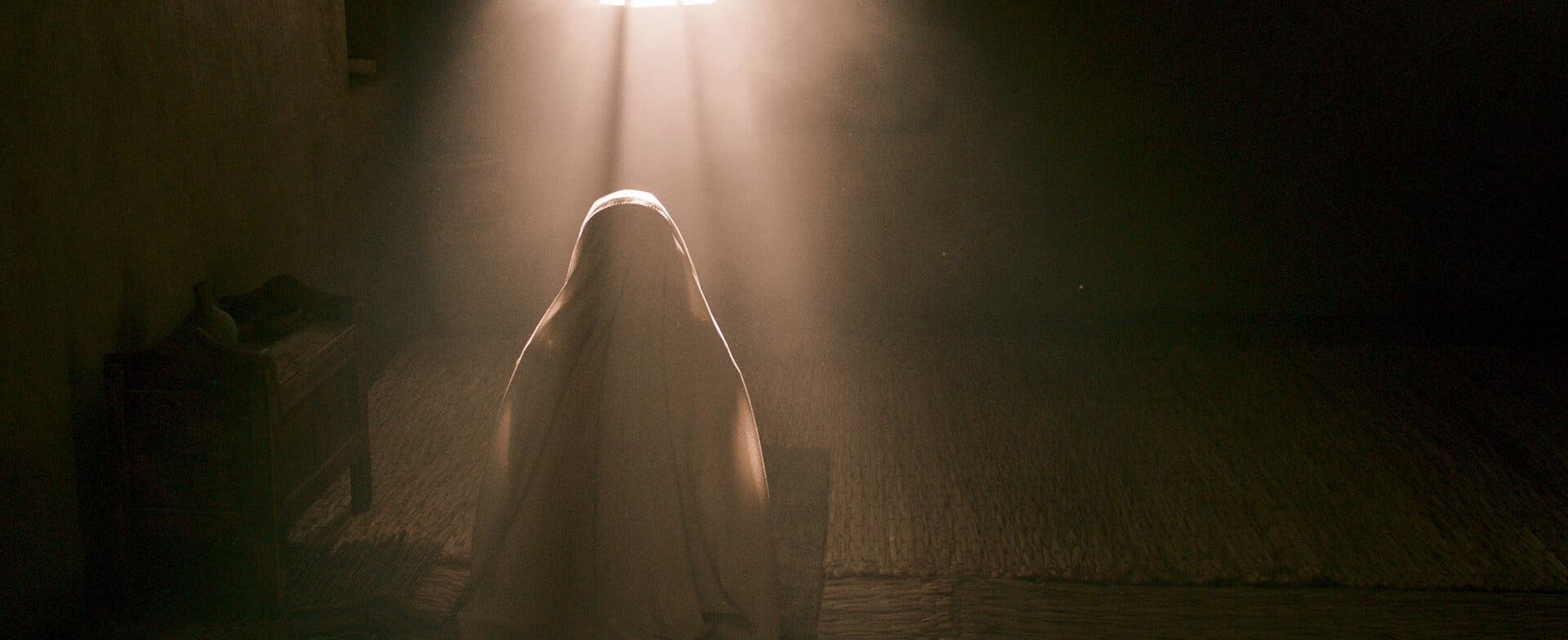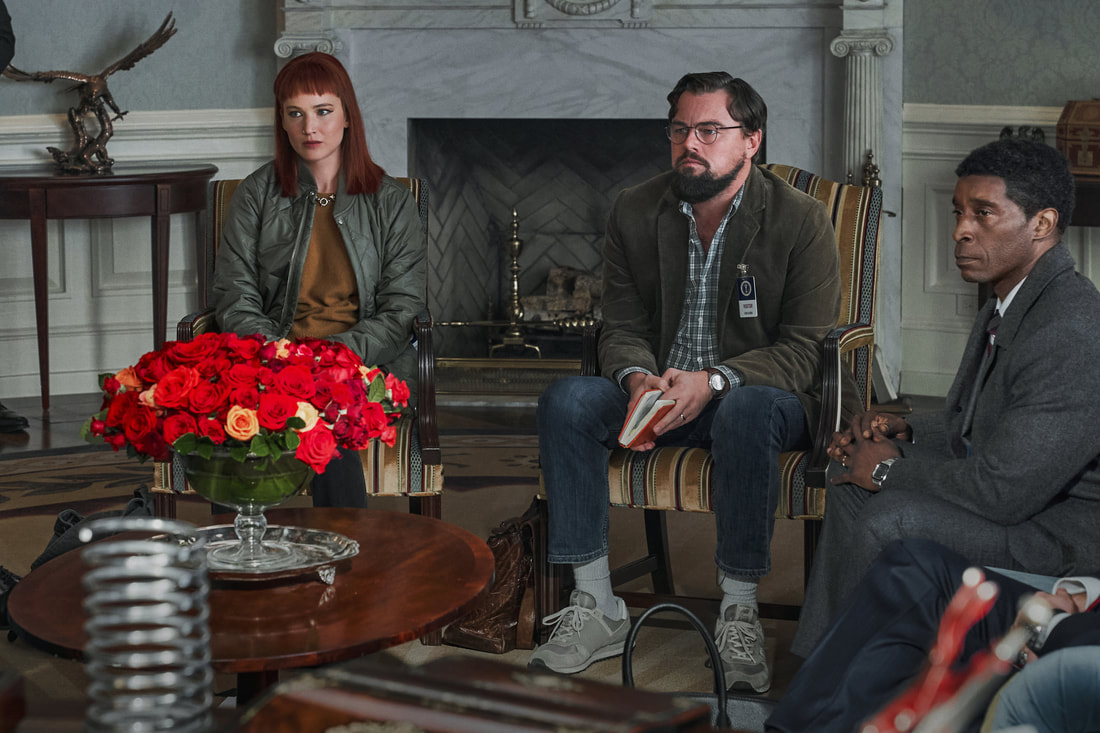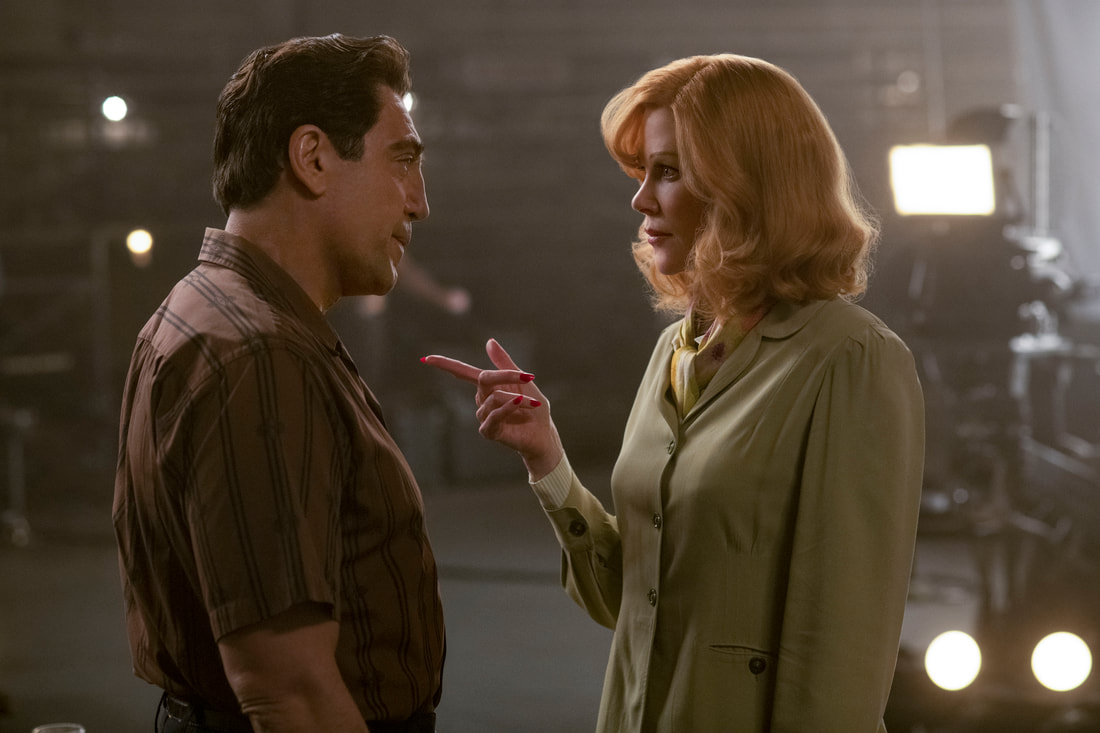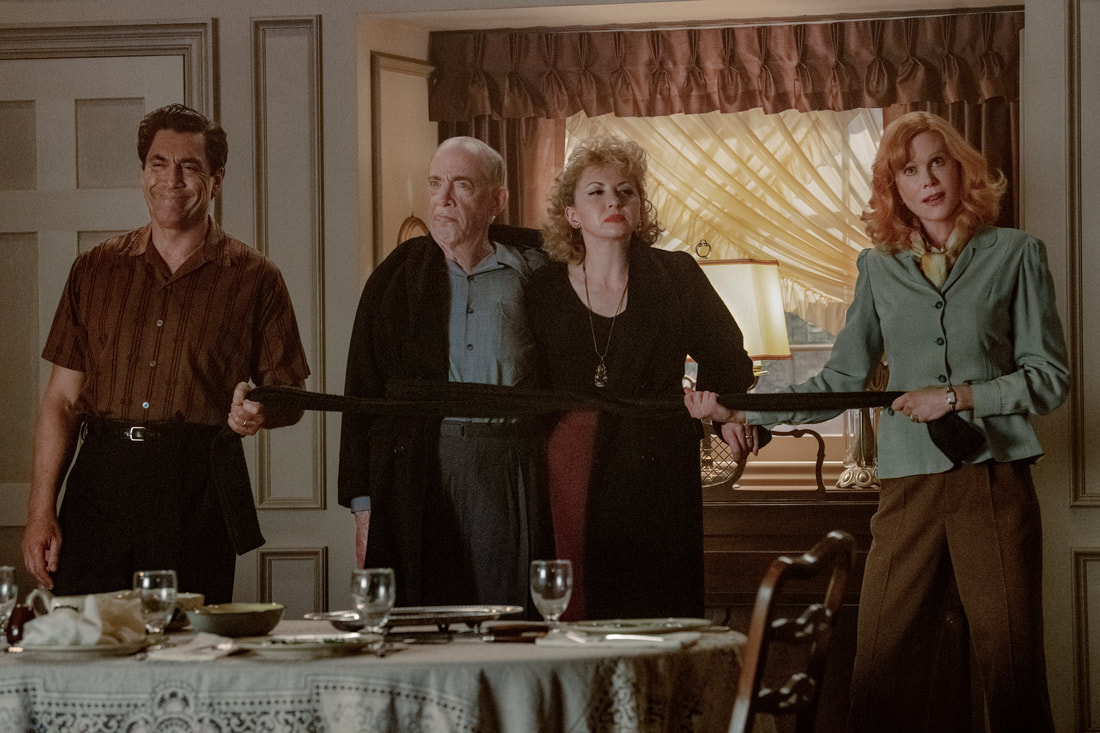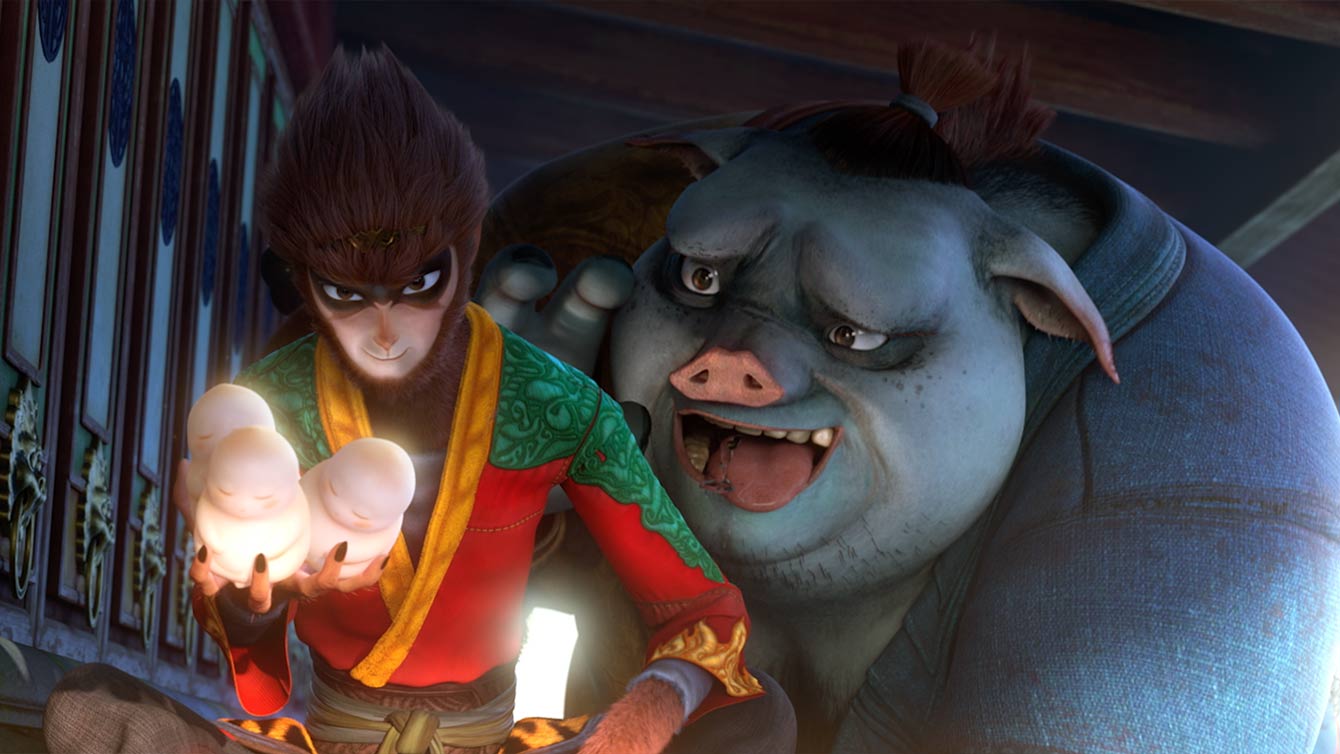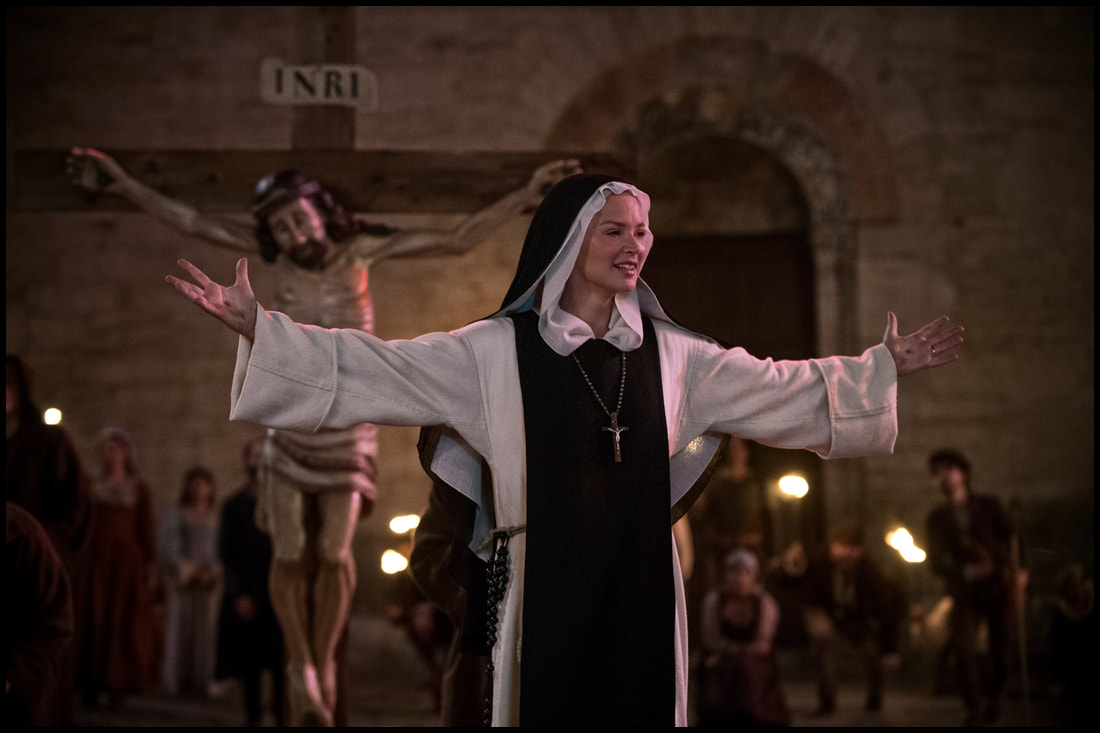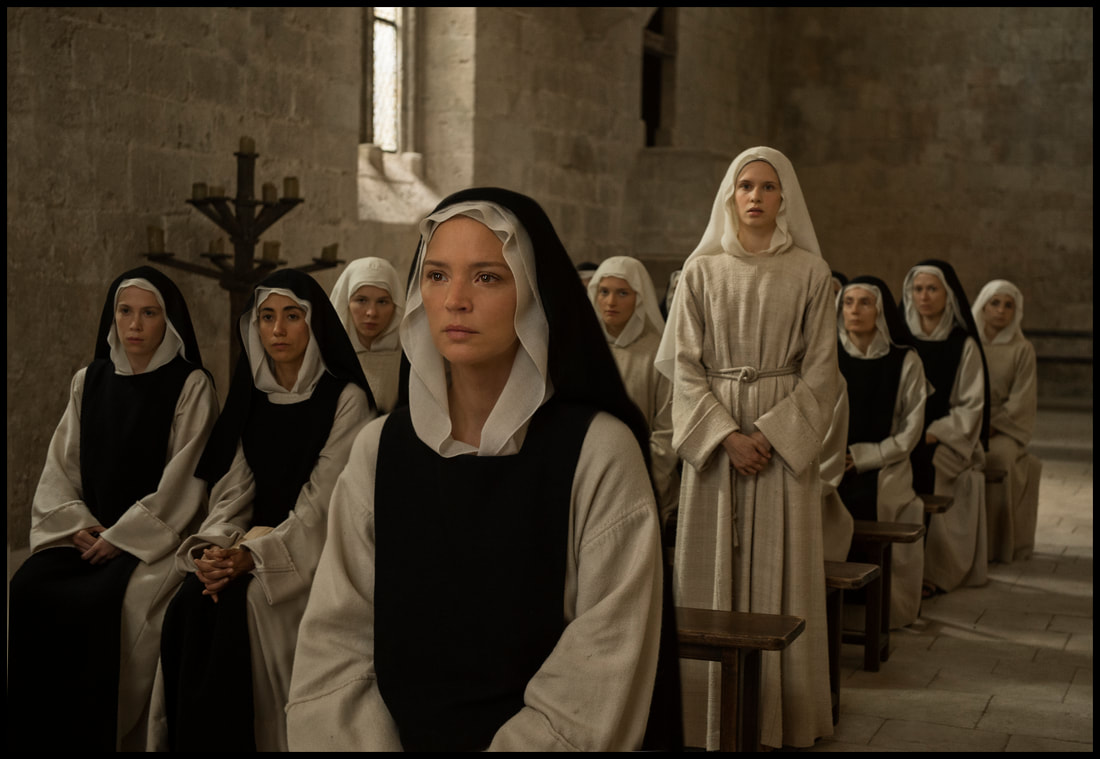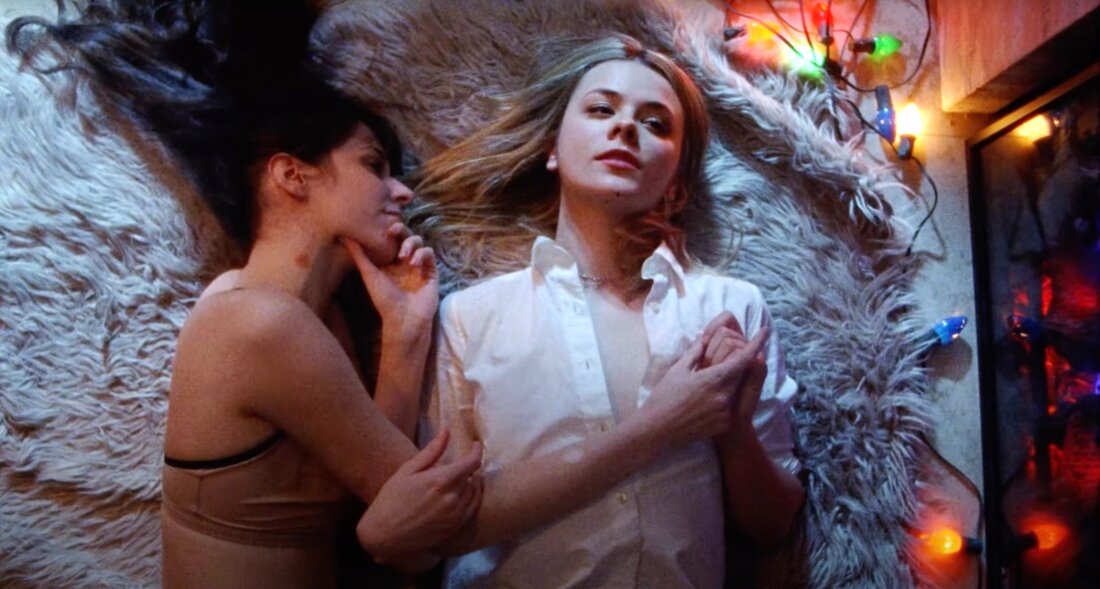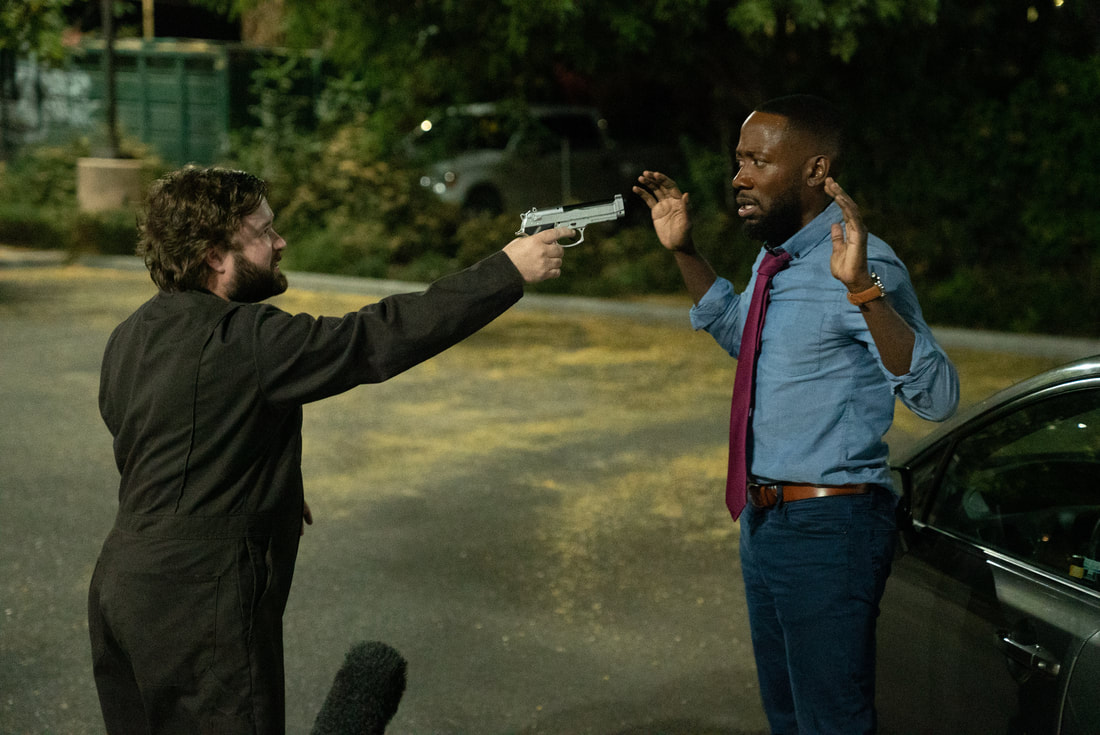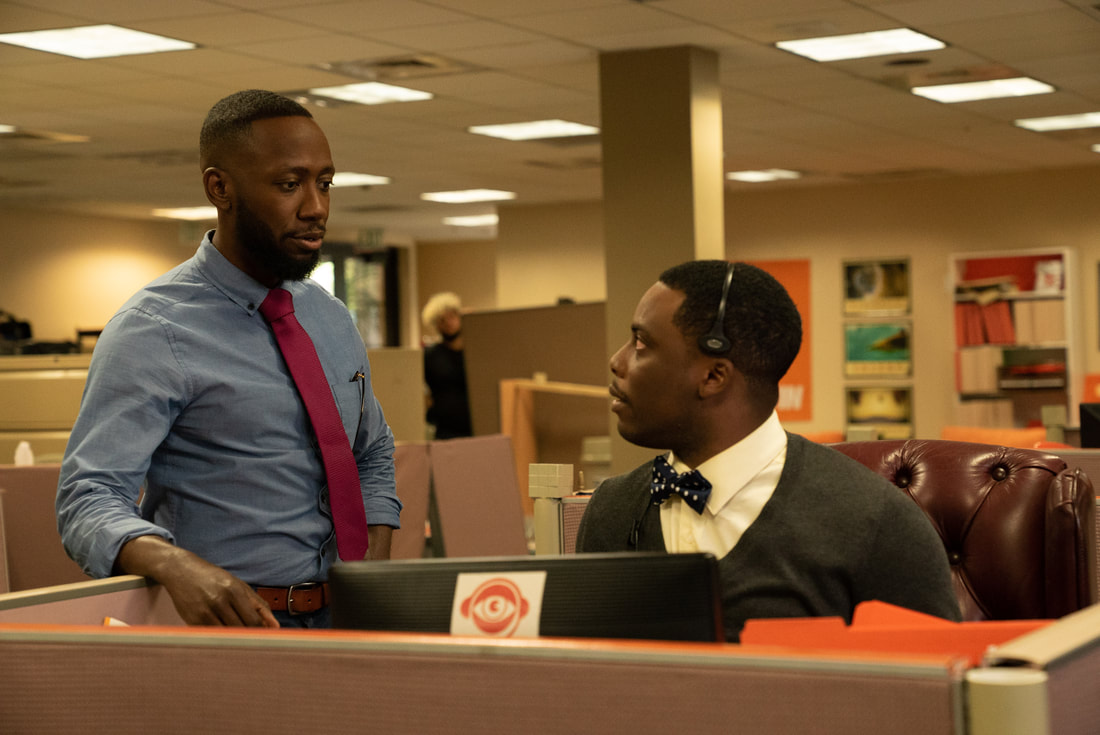|
Review by Sean Boelman
Every year, especially around the holidays, there is a deluge of Christian faith-based dramas, a majority of which are nearly if not entirely insufferable. There aren’t as many films based on other religions, and so The Lady of Heaven is unique in that regard, but it isn’t unique in that it’s just as maudlin as its Abrahamic cousin’s counterparts.
The movie tells the story of Lady Fatima, the daughter of the Prophet Muhammad, and the tremendous backlash she faced when her husband Ali is named the successor of the Prophet. However, the framing device of the story, following a young boy whose mother is murdered by violent terrorists, is what moves this from bland historical drama to emotionally cheap sermon. One of the most frustrating things about the film is that it doesn’t seem to know its audience. Muslim audiences who are old enough to see the movie (it is rated R due to an extreme amount of blood and violence) will already know this story, and non-Muslim audiences may be off-put by the didacticism. It’s a shame, because the message of the film is undeniably a good one, regardless of what creed one comes from. There are a lot of assumptions made about people of the Islamic faith, and this movie sets out to disprove a lot of those misconceptions. It means well, but ultimately, those who need to hear it the most aren’t going to be those who are going to hear it.
The pacing of the film is also pretty insane. There are massive, bloody battle sequences spread throughout that imply that the filmmaker’s don’t trust the audience to be invested in the story otherwise. Yet even though the movie has a lot of action in it, it manages to feel extremely dull nevertheless.
Something that is really interesting about the film’s execution is that, in accordance with the Islamic faith, no one actor or actress can play a holy figure. And as such, a majority of the movie is shot with creative tactics to avoid this issue. The rest of the cast is not impressive, though, delivering the mediocre dialogue in a stilted way. From a technical level, the film isn't all that strong. It’s clear that the budget isn’t as large as that of a mainstream historical epic, resulting in a lot of scenes feeling like cheap reenactments rather than the large-scale spic this is trying to be. The movie also does some of the cheaply emotional tricks that you’d expect from a religious film like this. The Lady of Heaven is a noble attempt at making something different in terms of the religious movies, but it falls victim to a lot of the traps of the genre. The message is expectedly well-intentioned, even if the film does struggle to get it across. The Lady of Heaven is now in theaters. Rating: 2/5
0 Comments
Review by Sean Boelman
Bruno Dumont is definitely a very divisive filmmaker, and his newest film, the media satire France, is likely to be his most polarizing yet. And while the first two acts of the movie are rather hit-or-miss, a strong ending brings everything together in a way that is unexpectedly compelling and approachable.
The film tells the story of a celebrity journalist whose life begins to unravel in a chain reaction beginning with her perpetrating a car accident. It’s the type of movie that, for a majority of the runtime, purposefully tries to make the audience feel distant from the characters and their story and then brings their entire world crashing down around them in a blaze of glory. For the first hour and a half, the film is a darkly satirical look at the media world, and then it becomes a more intimate character drama. It’s an interesting move, making the audience hate the protagonist before allowing them to identify with her for a crushing finale. But the result ends up being a bit of a mixed message which is frustratingly ambiguous. This first portion of the movie can definitely get very grating at times, watching people you hate doing things you hate over and over again. The film is over two hours in length, and the character’s arc doesn’t really even start until two-thirds of the way through, and while it recovers strongly, it takes perhaps a bit too long to get there to fully work.
One of the more surprising things about the movie is that it doesn’t pack as much political bite as one would expect. In an early scene in the film, there is a press conference in which the protagonist ridicules a politician at a press conference, and the rest of the movie struggles to match this. There are a couple hard-hitting moments throughout, but they come and go.
This film is definitely a showcase for the acting talents of Léa Seydoux, who virtually carries the movie on her own. Her performance is one of the only things in the film that even resembles nuance. She prevents the protagonist from feeling like a mere caricature, especially in the first half of the movie which is a bit heavier on the humor. From a technical level, the film isn’t particularly convincing. The thing with satirizing something as widely visible as celebrity journalism is that there is a clear template for it to follow, and breaking that can make a movie look like a cheap knock-off. Apart from one brilliantly-executed sequence, this film fails in making the viewer feel immersed in this world. Had the first hour and a half of France been as strong as the final act, it could have been one of the best satires of the year. Instead, it’s a somewhat underdeveloped dark comedy that has a few glimpses of brilliance. France is now playing in theaters. Rating: 3/5
Review by Camden Ferrell
Back to the Outback is an international co-production between the United States and Australia obviously. It is the directorial debut of the duo consisting of writer Harry Cripps and animated film veteran Clare Knight. The movie feels somewhat fresh due to the seldom seen Australian setting in children’s animation, but this movie lacks a lot of humor and charm that’s needed to appeal to older children and adults.
An Australian Zoo has a collection of some of the world’s most deadly creatures. This includes a snake, spider, thorny devil, scorpion, and even a crocodile. When one of their own gets taken from the zoo, and the animals become disenchanted with being looked at as monsters by the public, this group of animals plot an escape in order to go to the Outback. It’s a simple premise, and it feels like it has been done many times before, but it’s sufficient for a kid’s movie. This film was written by Cripps and Gregory Lessans, this being the latter’s first feature length script. Unfortunately, the writing seems to lack depth and character, and it doesn’t do much to create funny and memorable interactions between its characters. Everything is spelled out for the audience in a dull way, and it’s one of the film’s weakest aspects.
The movie also features a pretty star-studded cast. It stars Isla Fisher, Eric Bana, Guy Pearce, Jacki Weaver, and Keith Urban among others. However, none of the actors do anything to make their performance memorable. Nobody gives a bad performance, but I’d struggle to remember their quality even shortly after watching the movie. This is rather disappointing considering how talented the cast has proven themselves to be in their respective careers.
Even if it’s not bad, the movie also doesn’t have the highest quality animation. It looks cheaply made at times and can really make the final product feel less valuable than it might actually be. Despite its flaws, I will concede that there are a few funny moments of physical comedy throughout, and it features noble albeit familiar themes for kids to learn from. Back to the Outback may only appeal to very young children, but it has some funny moments even if it’s surrounded by a lot of mediocrity. The setting of the Australian outback was refreshing, but it feels rather derivative and repetitive other than that. Back the Outback is available on Netflix December 10. Rating: 2.5/5
Review by Sean Boelman
The production timeline that National Champions has had is absolutely insane, from being announced in April of this year to a release a mere eight months later. And while the cards were stacked against Ric Roman Waugh’s sports-centric boardroom drama, it’s a surprisingly great film thanks to the perfect storm of its elements working together.
The movie follows a college football player who shocks the world when he calls for a boycott right before the national championship game, and the people in the NCAA who have to scramble to fix the mess he created. Although the film’s story is itself a fictional story, it is certainly at least inspired by the real-life struggle that student athletes have had in fighting for fair compensation. A majority of the movie’s substance comes down to the argument of the ethics of the scenario. There isn't a whole lot of subtlety in the script — some characters outright ask some of the most obvious questions and are met by a room of silence, showing that there are no obvious answers — but it’s a film that very angrily challenges the status quo, and works for it. The thing that is ultimately the movie’s downfall is that it tries to juggle too many pieces. Although things are kept at a high level of intensity throughout the almost two-hour runtime, one can’t help but feel like some of the detours that the film takes are unnecessary. We are supposed to care about every player, coach, and executive involved in this situation, and that is just impossible to do.
And perhaps more damningly, this comes at the expense of the development of the protagonist. The all-star football quarterback is a traditionally likable trope, and this character is no exception, but in trying to make us empathize with the rest of the people involved with this situation, the movie loses track of what it was that made us care about it in the first place.
The ensemble of the film is truly exceptional, although there are a few people who are wasted in smaller roles. Kristen Chenowith, David Koechner, Lil Rel Howery, Andrew Bachelor, and Timothy Olyphant are barely in the movie and don’t make much of a splash. That said, some other performers truly shine. Stephan James is obviously great in the lead role. J.K. Simmons does some of his best work since Whiplash as the coach trying to mediate between the two sides. And Uzo Aduba is astounding as the legal counsel, having both a big supporting actress moment and many restrained ones. It’s clear that this film was made in a rush because of how hurried everything seems from a technical level, but there are still some very good things going on here. For a movie that is largely a bunch of meetings, Waugh is able to create an unexpected level of suspense and anxiety throughout. National Champions does end up feeling a bit overstuffed, but it is much better than anyone expected it to be given the fact that it quite literally came out of nowhere. It’s one of the better sports movies of the year, and it doesn’t even contain that much in the way of actual sports. National Champions hits theaters on December 10. Rating: 4/5
Review by Sean Boelman
The career of Adam McKay has gone through two distinct phases: one making goofy comedies with his comedic partner Will Ferrell, and the other making tongue-in-cheek political satires. His newest film, Don’t Look Up, is perhaps his angriest yet, although in its lampooning of the government’s exuberance, it falls victim to the same excess itself.
The movie follows an astronomy professor and his student who discover a comet hurtling towards the Earth, but find themselves met with resistance and ignorance when they try to alert the government and the public. And while the film is an apocalyptic sci-fi comedy, there are a lot of parallels here to other things going on in the real world right now. Perhaps the biggest flaw of the movie is that it is excessively bloated. Although the laughs come pretty steadily, the film is still nearly two and a half hours long, and it really fails to justify that runtime. The movie gets its political point across pretty quickly, and so the middle section that basically just hammers in the stupidity of the American government is a bit much. As is the case with The Big Short and Vice, there is definitely some very sharp commentary to be found here, but his older-school lowbrow gags are more present here than they were in his previous two outings. That’s not to say it isn’t funny — it’s just that this film aims for much more low-hanging fruit compared to the other two satires he has made.
The movie also really banks on its eclectic cast of characters, and it is a hit-or-miss in that regard. For every caricature of a real-life person, like Mark Rylance’s Steve Jobs stand-in or Meryl Streep’s gender-swapped MAGA Republican, there’s a character like Timothée Chalamet’s skater-turned-amateur-philosopher that feels underdeveloped.
Still, the cast that was assembled for the film is exceptional. Leonardo DiCaprio gives a performance that is very different from what he has been giving in recent years, restrained but still very funny. And the supporting cast is filled with great turns from Jonah Hill, Ron Perlman, Cate Blanchett, and more. The movie does share the same frustratingly stylized approach as Vice, albeit on a bigger scale. The use of freeze frames and incorporation of stock footage as a motif is still here, and while it worked to an extent in the other film, it feels overwrought here. The only thing that does stand out about the execution is a comedy song by Ariana Grande and Kid Cudi, which definitely gets a laugh. Don’t Look Up is enjoyable enough for what it is, but one can’t help but feel like Adam McKay’s worst tendencies are amplifying as he keeps getting bigger and bigger. The Big Short was one of the sharpest movies of the last decade, and in trying to outdo himself, he misses what made it so special in the first place. Don’t Look Up streams on Netflix beginning December 24. Rating: 3.5/5
Review by Dan Skip Allen
Aaron Sorkin has been attached to Being the Ricardos for a while now. This film had a couple of stops and starts. At one time Cate Blanchett was attached to the film as Lucille Ball until Sorkin settled on Nicole Kidman instead. Sorkin wasn't originally going to be the director until he couldn't find one for the project. He's got the hang of it now after directing The Trial of the Chicago 7. Amazon came aboard and the film was finally ready to go with Kidman as Ball and Sorkin as director. It was definitely worth the wait.
Being the Ricardos is a week in the life of Lucille Ball and Desi Arnaz. There is a framing device where ex-members of the cast and crew of I Love Lucy tell the story of said week in the form of a documentary style. This week rotates between Lucy and Desi's personal life and them both working on the show with small vignettes of reenacted episodes in black and white. This shows a distinct difference between the show and the description of the events of the week as a whole on set and off. Getting first-hand accounts of this week in the life of these characters is a great way to tell this story. A lot of television shows such as The Office and the film Black Mass used this technique perfectly. Sorkin balanced the various scenes and styles of filmmaking perfectly. He bounced back and forth effortlessly from doc style, episodes, and described events of the week. Having such a great script makes it easier to direct the actors who are devouring the words like food from the dinner table. This script is like a chef's kiss. Sorkin's quick dialogue and snappy banter are perfect for this film. As perfect as perfect gets. It couldn't be better and Sorkin will surely garner another Academy Award nomination for writing the screenplay of this film. The cast in the film is very good including Oscar winners J.K. Simmons as William Frawley, a member of the show and friend of Ball's, Javier Bardem as Desi Arnaz, Ball's husband both on and off-screen and producer of the show, and Nicole Kidman as Lucille Ball herself. She gets all the family drama situations with Bardem's Arnaz and all the ins and outs of the onset stuff from the sitcom I Love Lucy. The various situations show that Kidman was the right person for this role. She exudes excellence. She's been killing it for years on television shows like Big Little Lies and The Undoing. Her career keeps rolling forward with one great performance after another no matter what genre or style it may be. She's still at the top of her game.
Films about old Hollywood or the past have to capture the whole vibe and feel of the era they are taking place in and Being the Ricardos does that in spades. It has amazing set production and production value. From the clothes to all the onset stuff from the show, Sorkin and company get everything right. The cigarette smoke, the lighting, and the camera angles are all shot very nicely. Every aspect of production is handled with care and professionalism. This entire production is done on a first-rate level hitherto unseen. Old Hollywood has been done before in films, but not as good as this film.
Being the Ricardos isn't an episode of the show I Love Lucy, even though little segments are shown in black and white. It is a microscope into the lives of the people on the show, the production team, and mainly Arnaz and Ball themselves. Everybody involved in the film gets the beats of who these people are so perfectly. Little things like reshooting a dinner scene or arguing about the motivation of characters and their decisions in the show are handled deeply and subtly. The film gets all the geopolitical climate at the time of the 1950s perfect. From the prejudices of producers to disagreements with the producer Jess Oppenheimer (Tony Hale), the film shows the power struggles Ball has. She has to have her way in a world of men. She fights for everything she gets, even things for her husband, Arnaz. Personal attacks on her character and her patriotism are at the forefront of this film. It's one of the best biopics in recent years, and this year is packed with great biopics. This film gets to the bottom of who these people are, especially Ball. With all the struggles she's going through, she still creates a great character on the screen each week for millions of people to watch and adore. The best picture race this year, like every year, is an incredible race. At least a dozen or more films are contenders for those ten slots at next year's Academy Awards. I am here to say Being the Ricardos should be in that number. It's easily one of the best films I've seen all year. It has everything going for it from an incredible script from wordsmith Aaron Sorkin to the amazing cast led by three Oscar winners. This film has everything going for it. The production aspects from the camera work and set production to the score are all top-notch. The framing device even worked to perfection. This film just shows that you never know the true story of something or someone until you ask what really happened. I Love Lucy just doesn't do Lucille Ball justice as a person even though it tried to. Being the Ricardos hits theaters on December 10 and Amazon Prime on December 21. Rating: 5/5
Review by Sean Boelman
When it comes to Chinese animated films, there are some that are genuinely creative but more that exist primarily to meet the national quota. The Monkey King: Reborn falls more into the latter category, with a standard retelling of this well-known tale from Chinese mythology resulting in an altogether forgettable family movie.
The film follows the trickster Monkey King as he accidentally unleashes the Demon King, sending him on a quest to save the world before the Demon King is able to unleash his armies and destroy the world. The Monkey King is definitely one of the more iconic figures of Eastern mythology, and so audiences will likely have at least a passing familiarity with the tale. For the most part, the movie seems to operate under the assumption that the audience will know the backstory and understand the principles that govern this legend. And for the most part, the target audience will have that knowledge, but international audiences may find themselves to be a bit lost. However, for a film that relies so heavily on such a rich and deep mythology, the movie is awfully simplistic. It’s a very by-the-book, relatively sanitized adventure that recounts familiar beats. It’s clear that the film exists mainly to reinforce national pride and instill younger Chinese viewers with philosophical values, rather than cater to a global audience.
The movie throws the audience into this world in a way that is sometimes frustrating. There are a lot of really interesting side characters in the film, for example, but so much of the runtime is spent building up this character who has been chronicled time in time again in various forms of storytelling throughout the ages.
It also feels like the movie is trying to modernize the tale of the Monkey King in a way, and that doesn’t exactly fit well here. Although mythologies across the world often have a lot of similar tropes, and those tropes are frequently adopted by pop culture, much of this film feels like a blatant attempt at assimilation, and that is disappointing to see. From a technical standpoint, the movie is solid. The animation style is a bit nondescript, but the action sequences are done in a way that is big and exciting. And then on top of that, there is the low-brow humor which serves as the comedic relief for a significant majority of Chinese films, and some of that is poorly-executed. The Monkey King: Reborn is pretty underwhelming, especially considering the wealth of great animated movies we have gotten in recent years inspired by Chinese mythology. It’s a case of been there, done that which won’t ever get off the ground. The Monkey King: Reborn hits VOD on December 7. Rating: 2.5/5
Review by Sean Boelman
Paul Verhoeven is inarguably one of the wildest filmmakers working today, with a filmography spanning from Showgirls to Starship Troopers. His newest movie, Benedetta, might sound like a regular old period drama on paper, but Verhoeven’s iconoclastic style shines through in a truly glorious manner.
The film follows a nun who begins suffering from religious and erotic visions which lead her into forming a sensuous relationship with one of her companions. The thing about Verhoeven’s movies is that their premise can often be boiled down into a few simple words, but end up feeling expansive and complex. Like many of Verhoeven’s other films, the biggest thing that this has working in its favor is its sheer audacity. The movie has inspired protests throughout its festival run from religious groups attacking its supposed “blasphemy”, and while the reaction is overblown, it’s easy to understand why they are reacting this way. There is a lot of imagery that is incendiary… and quite hilarious. Those expecting there to be a great deal of subtlety in the film’s exploration of its themes definitely aren’t familiar with Verhoeven and his work. He has never been particularly quiet in his movies about his frustrations with organized religion, and this one in particular really brings that to the forefront.
If there is something that is missing from the film it is character development. The romance at the center of the movie goes a long way in making things feel more grounded, especially during the more fantastical moments, but it doesn’t do a whole lot in making the character more compelling.
Virginie Efira does a solid job in her leading role. This is definitely the type of film that is very exaggerated in nature, and her performance is hammy enough to work in the role. Even more impressive, though, is Charlotte Rampling, who steals the show every single time she is on screen. On a technical level, the movie is definitely very ambitious, and it pays off more often than it doesn’t. Even in some of the scenes that aren’t as visually polished, the amount of energy that Verhoeven puts into it is pretty admirable. The mix of the production design and spectacular fantasy works quite well. Benedetta might not be a great film, but it’s a load of fun to watch in all of its insanity. It’s not for the easily offended, although it’s hard not to at least respect the gusto that Verhoeven showed in even attempting to make this, much less pull it off. Benedetta is now in theaters and hits VOD on December 17. Rating: 3.5/5
Review by Sean Boelman
Jeffrey Epstein has become the ultimate running punchline for every joke, and Dasha Nekrasova has made the ultimate gag with her feature debut The Scary of Sixty-First. Having no shortage of style to spare, this may not be a good film, but it’s a fun time to watch in all of its unabashed wackiness.
The movie follows two roommates whose lives are changed forever when they move into a new apartment harboring a dark secret. For much of the first half, this is pretty standard haunted house fare with a retro-inspired feel, but once it goes off the deep end in revealing its hand, that’s when it starts to feel unique, for better or worse. One of the most frustrating things about the film is that it seems content with just being “that Jeffrey Epstein horror movie”. And don’t be fooled — it absolutely delivers on the insanity of that premise — but it would have been nice to see them do something interesting or worthwhile with it rather than just an exercise in style over substance. The movie also struggles to settle on a good tone. It’s always unclear as to whether we are meant to be taking this seriously or if we should be laughing at it. The latter seems more likely to be the case, but that then poses the question of why we should be laughing at the situation of people who were real-life victims of abuse.
There is also the issue of character development in the film. Neither of the main duo is particularly likable. We are just thrown into this friendship and expected to believe that it has been around for years without being able to see why it worked the way it does. So when it starts to fall apart, it’s no wonder, because we never saw what was holding it together.
The acting in the movie isn’t very good either, but it does fit the vibe which the film is clearly emulating. This is meant to feel like a trashy horror flick from decades ago, and that it does, although the decisively modern twist of it being a Jeffrey Epstein ghost story creates a massive disparity that is pretty hard to overcome. That said, the movie is enormously successful on a visual level. Nekrasova shows a lot of potential as a new director, and while her style largely consists of homages in this outing, her understanding of how to recreate this mood bodes well for her future. And the effects in the film hit that right balance between campy and unsettling to create that mood. The Scary of Sixty-First is definitely a bizarre movie, but that is absolutely part of what makes it so watchable. It’s a recreation of a particular style, albeit with a modern twist, and with a premise that one just has to see to believe. The Scary of Sixty-First is now in theaters and hits VOD on December 24. Rating: 3/5
Review by Sean Boelman
Its title quite obviously a pun on the famous play by Arthur Miller, the new comedy Death of a Telemarketer is unlikely to have as much of a lasting impact on the literary world as its namesake. However, thanks to a fully-committed cast, it manages to be a passable watch even if it isn’t all that funny.
The film follows a telemarketer who, desperate to pay off a debt, crosses some boundaries and finds himself at the mercy of one of the people who he tried to scam. It’s a concept that is certainly intriguing, but a solid premise alone is not enough to make an entire movie work, and that is where Khaled Ridgeway’s film struggles. After the first twenty minutes of the movie set up the conflict and the audience gets thrown into the action, it becomes clear midway through the second act that Ridgeway is working on little more than a strong idea. He has this story that seems like untapped comedic gold, but simply doesn’t know what to do with it, resulting in a film that feels like a bunch of filler. It’s hard not to immediately think of another, much better telemarketing movie: Boots Riley’s Sorry to Bother You. Much like Ridgeway, Riley was working with a creative and ingenious premise, but what made that film stand out was that he transformed it into something more with a political message. Ridgeway’s movie doesn’t seem to say much of anything, other than the fact that we don’t know what’s going on in the life of the person on the other end of the phone.
The characters in the film are all heavily archetypal. There’s the arrogant overachiever who finds himself threatened by a naturally talented newcomer (who is an underdeveloped secondary antagonist himself). And the villain is an exaggeratedly angry fella whose meanness can be traced back to a wrong that was committed against him by someone not too dissimilar to the protagonist.
Much of this movie’s success hinges on the talent of the cast. Lamorne Morris is a ton of fun to watch in pretty much everything he is in, and he eats it up here. He’s great in this quick-witted, fast-talking salesman role. And while Jackie Earle Haley isn’t doing the best of what he can do here, it’s still an enjoyable performance. There’s not a ton of flashiness in the film’s style due to the fact that it is predominantly set in a single location. But what Ridgeway fails to do is use this confined setting to his advantage. Although it’s clear that he definitely chose to go more of the dark comedy route, this could have been an effective farcical thriller had he instead focused more on building suspense and claustrophobia. Death of a Telemarketer doesn’t earn the right to give itself a name based on one of the all-time greatest works of literature. But that doesn’t mean it’s a bad movie — in fact, it’s a decently fun hour and a half, if only because of the talented cast. Death of a Telemarketer is now on VOD. Rating: 3/5 |
Archives
May 2024
Authors
All
|
|
|
disappointment media
Dedicated to unique and diverse perspectives on cinema! |

